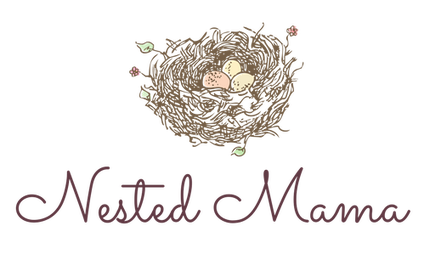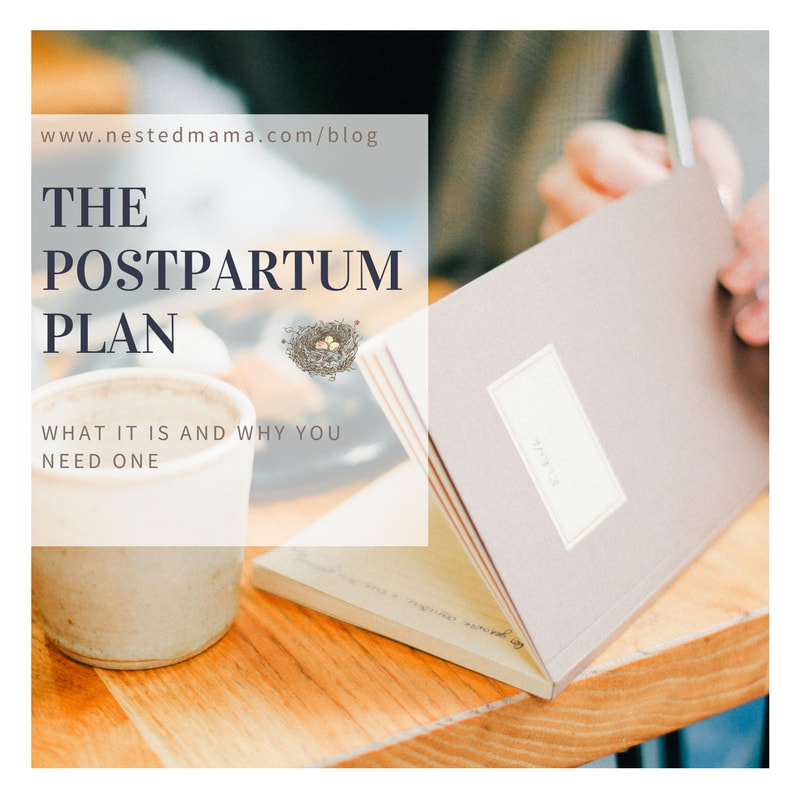|
Our cultural moment is an odd one. Things we laud - bouncing back after baby, returning to our pre-baby body (as though we could ever truly be the same), and getting back to our normal obligations as soon as possible after the birth of a baby. We also speak highly of so-called “good” babies - those babies that “don’t make a fuss,” those babies that are “happy to be put down,” and those mythical babies that “sleep through the night” within weeks of birth - as though these little markers of supposed independence are the ultimate indicators of a baby’s relative goodness or future successes or the trajectory of an entire parenting journey. Oof. That's a crushing amount of pressure. Recently, in a continuing education webinar with Julia of Newborn Mothers Collective, I learned something fascinating. In cultures that still embrace the postpartum period as one that requires specific care and traditions, the expectations for that 40-day period immediately following the birth of a baby are straightforward. Mothers are to feed their babies and to fall in the love with them. That’s it. This is simultaneously an incredibly simple and complex idea of the postpartum period to carry out. For truly, just resting, bonding with baby, and meeting baby’s needs for food and comfort can fill your days postpartum. But, juxtaposing this view of postpartum against the way the term is most commonly used in our culture (that is, laden with the expectation that you cruise out of those postpartum days and leave behind that postpartum body with little acknowledgement of the tiny, completely dependent-upon-you human you have just birthed), the radical differences in these approaches to life after baby emerge with clarity. Given these cultural pressures and a lack of tradition in our contemporary moment to meet our needs on the other side of a birth, what can we do if we want to embrace a different definition of postpartum? Start with a postpartum plan. So, what is a postpartum plan? A postpartum plan is like a birth plan, where you learn as much as you can about the process of postpartum recovery and demands of newborn care, explore your options with evidence-based information, and together with your partner or support person, craft a statement communicating your wishes with those who care for you in the days and weeks after baby arrives. Just like a birth plan, the postpartum plan is made with the understanding that life can be unpredictable and postpartum life can come with different situations that need different levels of adaptability and care. But, a postpartum plan also brings with it the understanding that having the ability to make choices for your family and being supported in those choices matter immensely. Perhaps most profoundly, a postpartum plan offers the opportunity for you to connect with your partner and dig deep into your priorities. Forming your own family unit comes with the sudden need to establish and communicate boundaries with family and friends. A postpartum plan aids you in thinking through your needs as a little family and how to create boundaries that help you flourish. Additionally, a postpartum plan offers you the chance to think through and engage your support team ahead of time. Who can bring you meals, help with older siblings, or grab you groceries after you return from the hospital? Who can walk the dog or care for pets while you are in-hospital? Who can come and hold the baby for a bit while you take a hot shower or grab a much need nap? Who can you call or text when you need to reach out for support? By creating a postpartum plan, you are creating the space and building the support essential for a better postpartum experience. Rather than rush through it as though a race to the finish, you can prioritize what matters to your family and savor the first days and weeks with your little one. While we can’t change our culture’s view of postpartum with a snap of our fingers, we can do all in our power to embrace a different view of postpartum in our own lives. Do you want to make a postpartum plan but don’t know where to start? I’m thrilled to share that I offer a Planning for Postpartum Workshop as part of Nested Mama’s services. Available in private and group settings, these workshops combine education about the physical and emotional realities of the postpartum period with a workshop that steps you and your partner through the conversations you need to craft a postpartum plan that works perfectly for your little family. Workshop topics include: Finding Joy - acknowledging yourself and your partner Setting Expectations - understanding postpartum recovery Bringing Baby Home - understanding infant behavior Setting Boundaries - charting your vision for postpartum life Intimacy After Baby - deepening your connection as a couple For information on the next workshop or webinar or to register, click here. 5/9/2018 09:13:00 am
Such a great post! I love your description of what a postpartum plan is, and I hope families take the opportunity to work with you in putting their plan together! Comments are closed.
|
AuthorJohanna received a Ph.D. in English in 2014. Now a postpartum doula and educator of childbirth, breastfeeding, and infant sleep, she blogs about pregnancy, birth, postpartum, and parenting. Archives
February 2021
Categories
All
|
Serving Iowa City, Cedar Rapids, and surrounding Corridor communities
Copyright © 2018



 RSS Feed
RSS Feed